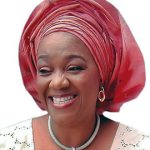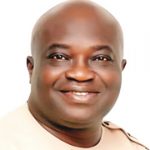GROWING up in Durban, a coastal city in eastern South Africa’s KwaZulu-Natal province, Rumana Mahomed considered Eid to be a chore. “It was just about domestic duties … what you’re going to wear, and what you’re going to prepare for everyone to eat,” she says. But she recalls her father and brothers returning home from Eid prayers at the mosque, upbeat and enthusiastic.
That wasn’t an option for her, however, as most of the mosques in her community didn’t accommodate women.
So Mahomed was taken aback when in 1995, at the age of 23, she and a group of South African women who were studying Arabic at a university in Jordan were taken to the Eid prayer. “It was at this huge soccer field, where we prayed behind the men,” she recalls.
Mahomed felt that she had finally found the spiritual dimension to Eid. “It was spiritually uplifting and emotional,” she recalls.
She and some of her friends immediately began researching the subject and were surprised to discover that the Prophet Muhammad had encouraged women to be present at the Eid prayer.
A family Eidgah
But back in Durban, things were very different. Although the city boasts several open-air Eid grounds – better known as Eidgahs – none were open to women.
Mahomed and her friends’ options were limited to the handful of mosques which accommodated them, but even those were not ideal.
“It was very difficult,” explains Fatima Seedat, Mahomed’s friend. “Sometimes to get to the women’s section, we had to walk past garbage bins. Once, we found that the women’s section was directly behind the men’s ablution facility, so we could hear men gargling … and spitting out stuff.”
Seedat, Mahomed and a group of their peers decided to take matters into their own hands, and under the banner of an organisation they were all part of – Taking Islam to the People (TIP) – they initiated Durban’s first family Eidgah in 2003.
According to Suleman Dangor, an emeritus professor of Islamic Studies at the University of Kwazulu-Natal, the reluctance to have women attend congregational prayers is based on a saying of the Prophet Muhammad that it is better for a woman to pray at home, and the advice of Umar, a prominent companion of the prophet, that his wife pray at home. “Opponents don’t make a distinction between prohibition and discouragement,” he explains, but points out that there has been a shift in thinking in recent times. “This change is due to individuals being influenced by literature and scholars, and being exposed to what is happening in other countries.”
Women expressing their spirituality
Aneesa Moosa, a 49-year-old occupational therapist, began attending the TIP Eidgah in its early years. “I was constantly having conversations with my friends about why we had to go to a mosque for the Eid salaah [prayer]. I wanted to go to the Eidgah. I was very frustrated and constantly upset that women were not accommodated at the existing Eidgahs,” she explains.
When she heard about the TIP Eidgah, she and her husband decided that they would attend, although traditionally the males in his family attended a large men-only Eidgah. “He recognised that this was closest to the Sunnah [the way of life of the Prophet Muhammad] and that this gave us dignity as a community,” she says.
Moosa vividly recalls her first Eidgah experience: “It was something that I’d dreamed of, that my family and I are present in the same congregation in a Sunnah set-up with other women and children and that I could greet my husband and son after the Eid prayer.”
Moosa, who later become part of the TIP Eidgah planning committee, acknowledges that while some women don’t attend Eid prayers by choice, either because they consider doing so to be impermissible or not crucial, others simply don’t have a choice. “Although the Prophet advised us to go and this should be the most important guiding principle, we understand that not all women have choices – sometimes the climate in the community is not conducive to women expressing their full spirituality,” she says.
The feeling of inclusion
“I would love to attend,” says Nasreen Kassam, who lives in Lenasia in Gauteng. “My husband would also love to have me attend, however it isn’t acceptable in my area. There are no facilities in Lenasia for this … I feel it should be a choice. We are currently not given a choice. We are supposed to just stay at home.”
Sumayya Surtee of Newcastle, a town in Northern Kwazulu-Natal, faces the same dilemma. “Unfortunately we do not have ladies’ facilities,” she says. “I can only imagine that Eid salaah would be an incredible way of uniting our sisters and giving us all an opportunity to meet and greet on such a celebratory day.”
Other women say they can’t attend due to domestic responsibilities. “It’s sad because I would love to experience it. I think it would add a lot more to the Eid atmosphere,” says Fatima, a resident of Durban. “I’m the only woman in the family, so literally everything rests on my shoulders. I guess if the family members are willing to wait a while to warm up the food after the Eid salaah [prayer] it would be okay, but I don’t think it would be very welcoming to allow my guests to wait while they are hungry.”
With her husband’s support, Khadija Davids, 41, was able to shift the family’s schedule around so that she could attend. “We were never given a choice – it was just a given that ladies stayed at home. My husband, who is a convert, told me ladies can go … I’ve been going for two years now – it’s the perfect way to end Ramadan … I love the feeling of inclusion and worshipping together as a family.”
“There needs to be a family discussion. The spiritual needs of females in a family ought to be given the same priority as those of males … If a family is willing to enjoy the spirituality of Eid salaah [prayer] together, they will make the necessary concessions,” Mahomed concludes.
- The situation is very different in Cape Town, where most mosques have women’s facilities, and the majority of open-air Eid prayers are open to men and women.
Source: Al Jazeera – Fatima Asmal.
WATCH TOP VIDEOS FROM NIGERIAN TRIBUNE TV
- Relationship Hangout: Public vs Private Proposals – Which Truly Wins in Love?
- “No” Is a Complete Sentence: Why You Should Stop Feeling Guilty
- Relationship Hangout: Friendship Talk 2025 – How to Be a Good Friend & Big Questions on Friendship
- Police Overpower Armed Robbers in Ibadan After Fierce Struggle






